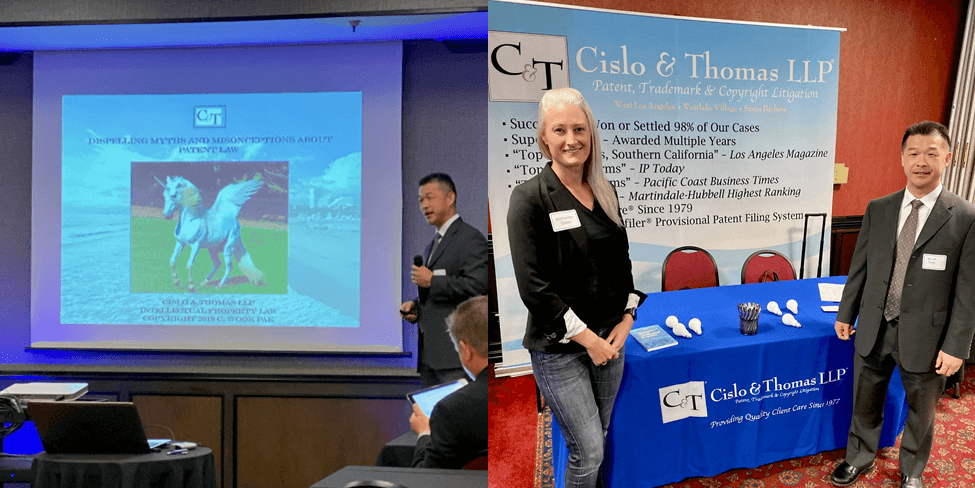Street Artist Files Suit Against Walmart and Ellen DeGeneres

Takeaway: Street artist Julian Rivera files suit against Walmart and Ellen DeGeneres, claiming unfair competition and copyright infringement after the large retailer and DeGeneres’ unlawful use of the artist’s signature design.
Earlier this month, Julian Rivera, a street artist claiming to be well known for painting “a particular line drawing of a heart, resembling the word ‘Love’” filed suit in a California District Court against Walmart and Ellen Degeneres for using his “love” design on a collaborative clothing line without permission. Rivera claims he painted the “love design” on a number of products, including clothing apparel, and even has an online shop which featured the signature “love” design. In an attempt to stop the giant retailer from selling apparel with the same “love” design, Rivera sent a cease and desist letter to Walmart back in May. Despite the letter, his demands went ignored. Rivera then filed suit against the retailer and DeGeneres for copyright infringement and unfair competition.
USPTO Meets Goals of Reducing Patent Pendency Rates
Takeaway: The United States Patent and Trademark Office has reached its goals of reducing patent pendency rates cultivating innovation and entrepreneurship.
The United States Patent and Trademark Office (USPTO) has been working for many years to reduce patent pendency rates. Since 2018, the USPTO specified goal rates of under 15 months for office actions and under 24 months for total pendency. Currently, at the end of the 2019 fiscal year, the USPTO reached these goals, reporting the “averages are 14.7 months for first action pendency and 23.8 months for total pendency.” These rates mark “the USPTO’s lowest first action pendency since January 2002, despite total application filings nearly doubling in that time, from 353,000 in FY 2002 to 667,000 in FY 2019.”
The improvements in these pendency rates at the USPTO is much attributable to the efforts of the USPTO office employees and their ability to better prioritize applications and balance workloads. Examiner training has also improved at the USPTO, leading to better equipped and efficient examining officers. These advancements will aid in promoting innovation and entrepreneurship to help grow the economy and to improve life as we know it.
AIPLA Asks the Supreme Court in Amicus Brief to Not Require Willfulness as a Prerequisite to a Disgorgement Award
Takeaway: The American Intellectual Property Law Association filed an amicus brief asking the Supreme Court to find that willfulness not be a requirement for disgorgement of profits under Section 35(a) of the Lanham Act.

The American Intellectual Property Law Association (AIPLA) filed an amicus brief with the Supreme Court in Romag Fasteners, Inc. v. Fossil, Inc., et al. No. 18-1233 to urge the Supreme Court to rule that willfulness is not a prerequisite for an accounting or disgorgement of the defendant’s profits as an equitable remedy under Section 35(a) of the Lanham Act. Section 35(a) of the Lanham Act provides a remedy in false advertising, trademark infringement, and dilution cases. The brief is premised on the argument that for a disgorgement award of the defendant’s profits under a Section 43(a) claim, willfulness is but an equitable factor in determining the appropriate remedy in the action, not a requirement for a disgorgement award. According to the AIPLA, Section 35 (a) should be interpreted according to the plain language of the statute to discover its original intent.
Supreme Court Denies Domino’s Pizza’s Petition, a Win for the Americans with Disabilities Act
Takeaway: Online media and apps must comply with the Americans with Disabilities Act.
In 2016, a blind man filed suit against Domino’s Pizza’s for violating Title III of the Americans with Disabilities Act (“ADA”) — which states that restaurants must be accessible to people with disabilities — because he was unable to order a pizza from their website or delivery app even with screen reader software. Domino’s argued that the ADA, passed in 1990, was not enacted with online media in mind and is unclear as to how applicable it is to a corporation’s online presence. In 2018, the 9th U.S. Circuit Court of Appeals ruled that Domino’s and other retailers must make its online services accessible and conform to the ADA. Domino’s filed a petition with the Supreme Court to challenge the decision. However, the Supreme Court denied the petition to take on the case, leaving the 2018 ruling in place to apply to all online restaurants and retailers. Check with W3.org, a useful tool aiding content creators in ensuring ADA accessible websites, to make sure your online presence is ADA accessible.

Bob Lauson of Lauson & Associates Retiring and His Team and Clients are joining Cislo & Thomas LLP
After 25 years of practice, Bob Lauson is retiring, and his clients and team are moving over to Cislo & Thomas. Bob has previously had a relationship with Cislo & Thomas, where he worked as an associate attorney from 1996 to 2004.
We are honored to serve Bob’s clients as he moves into retirement. Bob will be moving to Florida to enjoy boating the canals of Coral Gables. No more earthquakes for Bob!
Cislo & Thomas LLP Spotlight
Attorneys Wook Pak and Katherine Sales Represented Cislo & Thomas at Med Tech Marketing Summit 2019
Wook Pak, Esq. and Katherine Sales, Esq. spent a day in Irvine, CA at Med Tech’s Marketing Summit 2019, where Wook Pak, Esq. pleased his audience with his very knowledgeable and entertaining presentation on “Dispelling Myths and Misconceptions about Patent Law.”




